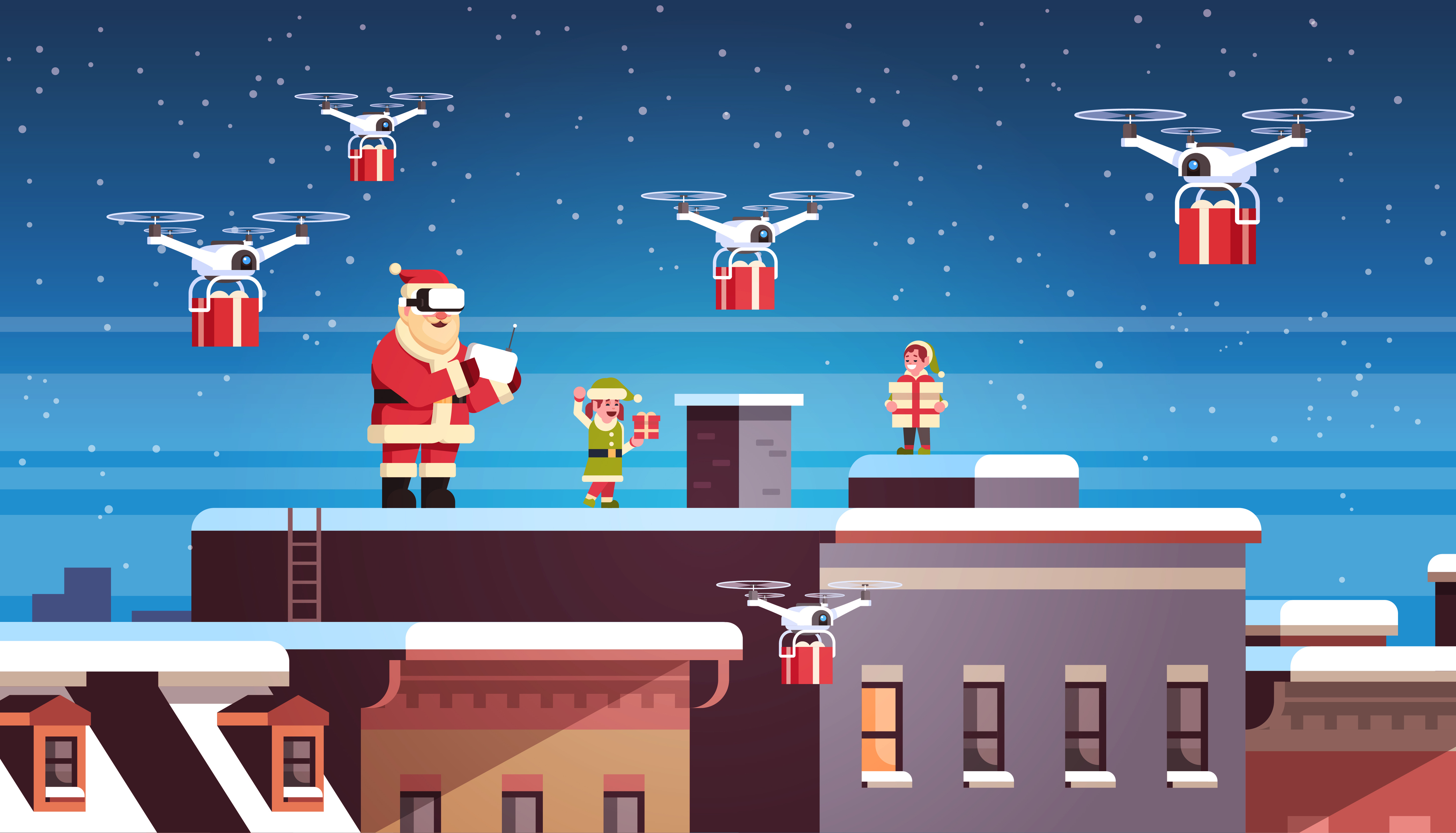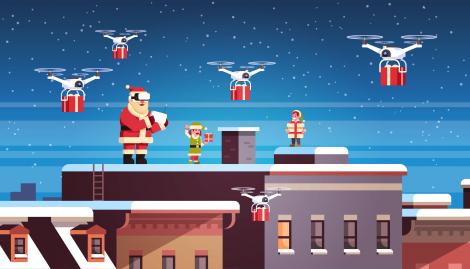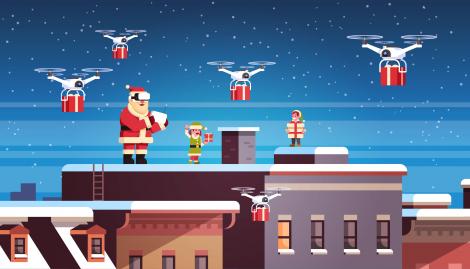If the reindeer are also having to self-isolate, then the drones will be most useful this year. Santa may need about a million drones to do this, with some bigger ones transporting the gifts from the North Pole, others bringing them to homes, and even smaller ones taking them down the chimney to living rooms.
Will Santa use AI to deliver his presents this Christmas?
Just as for all of us, the challenges of the COVID-19 pandemic have really taken their toll at the North Pole this year. One major hurdle remains: how will Santa deliver his presents this winter?
Because of his great age, Santa Claus spent much of the spring shielding, and rigorous COVID-secure safety regulations have greatly reduced the elves’ infamous productivity.
Nevertheless, the world’s children need festive cheer more than ever this year, and Santa’s little helpers have pulled out all the stops to prepare everything on time.
But how will Santa deliver his presents this winter?

What’s certain is he can’t rely on his age-old sleigh. How could so many reindeer be socially-distanced on the journey? Plus, Santa can’t enter Tier 2 or Tier 3 homes. Would presents be restricted to the Isle of Wight this season?
One solution mooted by AI experts at the University of Southampton is a swarm of autonomous drones. Uninhabited Aerial Vehicles (UAVs) can efficiently synchronise their deliveries and are much more obedient than restless reindeer.
If the reindeer are also having to self-isolate, then the drones will be most useful this year. Santa may need about a million drones to do this, with some bigger ones transporting the gifts from the North Pole, others bringing them to homes, and even smaller ones taking them down the chimney to living rooms.
The elaborate operation could build upon findings from Southampton research to evaluate larger and more efficient fleets of AI-driven robot swarms.
“It would be an incredibly complex coordination task to have all these different types of drones,” Gopal says. “Santa will need to be able to check they are putting the right gifts in the right stockings and be able to intervene if the drones find it difficult to distinguish which is required.
“Then you have the issue of safety; we don't want the drones to crash into chimneys or hurt any animals. He'll need to ensure they have a collision avoidance system in place.”

The mind-boggling scale of the operation requires immense organisation, however Santa Claus is used to the huge task of distributing billions of presents every year.
“There would be too many controllers for Santa and the elves to oversee, so they will probably need to use something like Siri or Alexa to direct and control them,” Gopal says. “Hopefully the work we are doing in the TAS hub has helped to build a trustworthy drone system that can save Christmas.”
Gopal recommends that a customary mince pie, carrot or sweet treat could still be left out for the drones to collect this December, but a complementary charging station might prove even more useful for the seasonal swarm.
Processing such vast amounts of data would require an immensely powerful supercomputer and, if rumours are true, Santa might also soon rely on this facility to work out which gifts to assign to all the world’s children.
Determining the naughty vs nice list has been shown to be computationally intractable. Based on the recent publication from Claus et al, we believe the GIFT metric is being used as a proxy to estimate which children should receive presents this year. However, concerns over the privacy implications of this new method have been raised, casting doubt on whether any gifts will be delivered at all.
We’ll just have to wait until Christmas morning to see if Santa’s succeeded…
University of Southampton joins Siemens and Arm...
The University of Southampton?s School of Electronics and Computer Science (ECS) is a founding academic partner in the newly announced Siemens Cre8Ventures Open Higher Education Program, launched in collaboration with Arm and Siemens Cre8Ventures to drive semiconductor innovation and bridge the gap between academia and industry.
Read MoreECS welcomes Dr Ihab Zaqout from the Al-Azhar...
The School of Electronics and Computer Science (ECS) is pleased to announce that Dr Ihab Zaqout has joined the school as an Associate Professor. Dr Ihab Zaqout is Head of Department of Information Technology at Al-Azhar University in Gaza.
Read More
Will Santa use AI to deliver his presents this Christmas?
Just as for all of us, the challenges of the COVID-19 pandemic have really taken their toll at the North Pole this year. One major hurdle remains: how will Santa deliver his presents this winter?
If the reindeer are also having to self-isolate, then the drones will be most useful this year. Santa may need about a million drones to do this, with some bigger ones transporting the gifts from the North Pole, others bringing them to homes, and even smaller ones taking them down the chimney to living rooms.

Will Santa use AI to deliver his presents this Christmas?
Just as for all of us, the challenges of the COVID-19 pandemic have really taken their toll at the North Pole this year. One major hurdle remains: how will Santa deliver his presents this winter?